Cannes Days 9, 10 & 11: Festival Closes With Tarantino & Talking Fridges
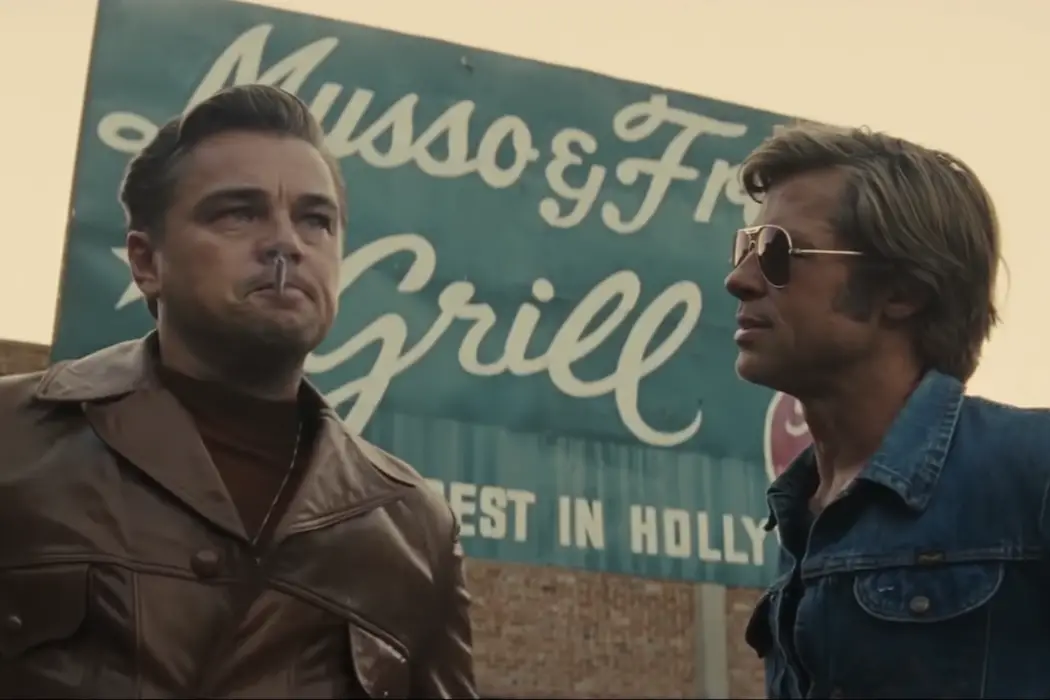
Gus is a 3rd year English Lit and Creative Writing…
Gus Edgar-Chan: Well, until next year Cannes. We finish exhausted, frazzled, zonked out on too many baguettes and not enough veg, and happy it’s all over—but we wouldn’t miss this event for the world. Our last few days saw Alistair and I queuing for a grand total of six hours—three hours only to be turned away, followed by another three hours the next day—to feast our eyes on the latest Quentin Tarantino (it was fine). Also on the review roster: Xavier Dolan‘s highly-anticipated gay romance (it was fine), and a film about a talking fridge that ends up winning Eurovision (it was—wait what did you say??). Au revoir Cannes, and hello sustainable sleeping pattern.
Once Upon A Time In Hollywood (Quentin Tarantino)
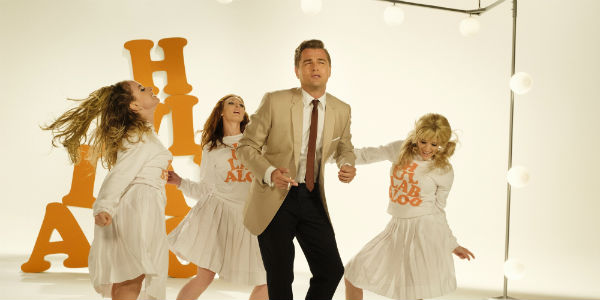
Gus Edgar-Chan: Quentin Tarantino’s recreation of late-60s Hollywood sees fading actor Rick Dalton (Leonardo DiCaprio) and his stunt double, Cliff Booth (Brad Pitt), traverse the landscape of an era at the end of its innocence. The duo are goaded into venturing to Italy for the late-career exploits of spaghetti westerns, and who can blame them? Dalton has been relegated to television cameos, younger stars have taken to method acting, and a group of free-spirited Manson murderers lurk at the fringes of L.A.’s bountiful riches…
As a nostalgic reconstruction of a time gone by, Tarantino’s ninth film is pitch perfect. Once Upon A Time In Hollywood works foremost as a celebration of celluloid—if his earlier films function as meticulous spoofs, his latest is the real deal. ‘Cinema’, with a capital ‘C’, is infused into the narrative—illustrated film posters are lovingly rendered and the camera’s dynamism injects a deliberate artifice—which leaves every image with something to gawk at, even if those images don’t add up to all too much.
For the precision of Once Upon A Time In Hollywood’s dazzling set design and time-capsule cinematography is counterbalanced by meandering plotting and wayward politics (if by design). Tarantino spends two hours following Dalton and Booth—and in part Margot Robbie’s Sharon Tate, though she operates more as symbol than fully-fledged character—through a surprisingly slow-paced series of inconsequential mishaps. The hedonistic through line is barely visible, and the rumination on its era’s obsolescence muddied by non-sequitur Bruce Lee skits and hippie hijinks. In turn, like Inglourious Basterds, this film is a series of excellent moments that struggle to cohere.
There’s something queasy, too, about Cliff’s problematic characterisation. Tarantino notoriously revels in provocation but this stunt double feels like the director’s duplicate, a vehicle for his questionable worldview—especially taking into consideration the many allegations aimed at the director, and how the character’s trajectory plays out.
And how the film itself plays out? Well, to dwell on specifics would go against its director’s plea to avoid spoilers, so, in vague terms: Once Upon A Time In Hollywood’s resolution is both a moving testament to the wish fulfillment that movies grant, and, consequently, a way to emotionally stunt the film’s strand on a loss of innocence. This is a film that resonates in fits and starts, the eye-catching cinephilia just about excusing some questionable decision-making.
Matthias & Maxime (Xavier Dolan)
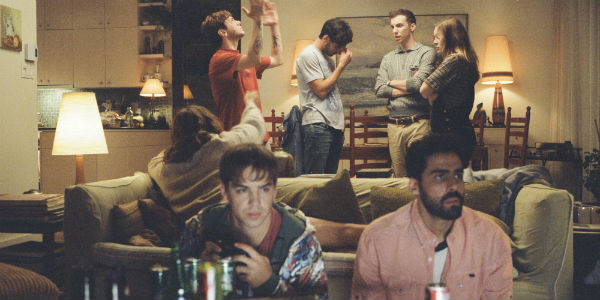
Gus Edgar-Chan: With the coming-of-age romance Matthias & Maxime, 30-year-old Xavier Dolan has proved once and for all that he’s a master of mustering up atmosphere. There’s something electric in the air here: two young men, lifelong friends, are looking toward a future apart from one another, and their platonic dynamic is finally crumbling down.
Dolan captures the mood of an uncertain future and a past that needs recalibrating; though I wouldn’t call this a comeback. I haven’t seen last year’s English-language whiff The Death and Life of John F. Donovan, but I thought the much maligned It’s Only The End of the World was a blast.
In fact, this is more a comedown than a comeback—after the whirlwind high of that aforementioned family drama, Matthias & Maxime is comparatively inert. Gone are the whizz-bang flourishes and eye-searing aesthetic, a far cry from the surreal adornments of Laurence Anyways. This has the pleasant effect of emphasising the moments in which Dolan does decide to employ such devices—a slow-mo snog in the rain, or a party on fast-forward—and the unfortunate side-effect of exacerbating the director’s worst impulses.
His brand of earnest sentimentality—and tendency to stage earache-inducing shouting matches—only works in his prior filmography because their bombastic nature are more suited to that stylistically extravagant tone. Here, they’re a mismatch, at odds with the simmering sway of a tender, touching romance.
This is a low-key melodrama, and if it bears signs of Dolan’s newfound maturity, I’m not quite sure that’s the direction I’d urge him to take. The cannonball naivety and gutsy showmanship is the director’s greatest strength, but in Matthias & Maxime we see him ignore that in favour of a pseudo-nuanced liaison marred by mawkishness. Yes, Xavier Dolan is a master of mustering up atmosphere, but here, that’s all he has to fall back on.
Oh Mercy! (Arnaud Desplechin)
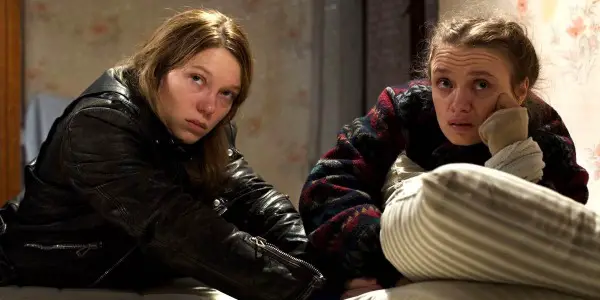
Alistair Ryder: The Cannes competition selection is widely considered the mecca for cinephiles, home to what is argued will be the most talked about films of the next year for film fans across the globe. I can imagine breathless conversations about Parasite, Portrait of a Lady on Fire and (of course) Once Upon a Time in Hollywood dominating the discourse over the months to come – and I can’t for a second believe that anybody will be talking about Oh Mercy! by the time the end credits have started rolling.
The latest mediocrity from director Arnaud Desplechin, Oh Mercy! is proof that the Cannes organisers will happily let any mediocre offering into their competition slate if it fulfils their French film quota. The director’s recent films, such as Ismael’s Ghosts and Jimmy P, have all been greeted with a shrug, if not outright vitriol – that he can still be back in the running for the ever elusive Palme D’Or, despite making a forgettable Gallic riff on the overly familiar Law & Order format, feels like a conclusive argument for cinephiles to not hold the Cannes slate in the high regard they currently do. That it’s adapted from a 2008 French TV documentary and still feels like a formulaic police procedural tells you everything you need to know about this lifeless project.
In the working class town of Roubaix, not too far from the larger city of Lille, we’re introduced to police captain Yakoub Daoud (Roschdy Zem) as he goes about his daily cases; a drunken case of arson that the culprit has blamed on Islamic terrorists, an armed robbery at a bakery, and the murder of an elderly woman. Eventually, two culprits interviewed for the arson case (played by the shockingly under-utilised Léa Seydoux and Sara Forestier) show signs that their may be deeper criminal activity at play; they fear retribution for naming the suspects they saw at the arson scene, and the murdered woman just coincidentally happens to live next door to them.
Oh Mercy!, presumably named after what you’ll be screaming after enduring something so painfully run of the mill, suffers from the unusual problem of being both too convoluted and yet so reliant on formula it never becomes difficult to follow. The film’s opening 20 minutes show promise, with a gritty noir voiceover that never materialises again, to a blackly comic look at the race relations in an economically deprived town. These brief glimpses of character are then discarded in favour of dull formula, with no surprises in the crime tale that eventually follows, all hints of life replaced with undiluted tedium.
Desplechin may have once been a celebrated filmmaker, but a project like Oh Mercy! won’t do anything to revive his career after a string of critical flops. No film festival that allows something so painfully average into their main competition selection should be held in such a high regard as Cannes is.
All About Yves (Benoit Forgeard)
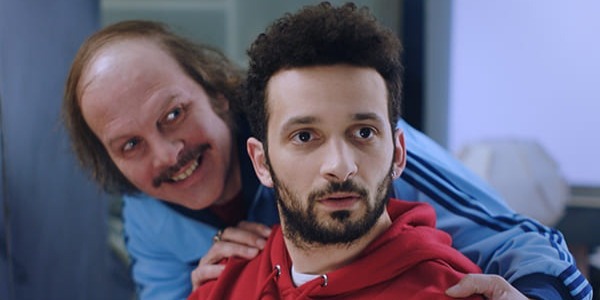
Alistair Ryder: With Her, Spike Jonze made audiences across the world transform into emotional wrecks, struggling to hold back tears at the heartbreaking romance between a man and a piece of software. If Jonze made the partnership between man and machine tangible, then director Benoit Forgeard goes one better, imagining a jealous, artificially intelligent fridge as the obstacle stopping a couple cementing their relationship, with the fridge going on to have a successful music career, even winning the Eurovision Song Contest, just to spite its former owner. It’s the most bonkers premise of any film playing at Cannes this year, and most improbably of all, it still manages to have heart behind the increasingly surreal laughs.
Jerem (William Lebghil) is a struggling rapper, who has moved into his grandma’s house following her death, turning the basement into a recording studio. With no job and no success in his music career, he signs up to a free trial of a new, high-tech fridge; all the groceries are paid for, and it monitors your diet to choose what’s best to keep you healthy and creative. Jerem is being watched over by So (Doria Tillier), a statistician at company Digital Cool, who takes immediate interest in his music career and how it will change with a revitalised diet. But then, something unusual happens – Jerem gets too friendly with his fridge (voiced by Antoine Gouy), the fridge starts second guessing his personality and starts recording songs using Jerem’s voice, against his wishes. Jerem finally becomes an overnight musical sensation, but it’s really his fridge pulling the strings, a partnership that soon gets tested when it starts developing feels for So, who Jerem is harbouring an all encompassing crush on.
Despite its hyper-specific premise, All About Yves is far likelier to become a favourite of both sci-fi fans and comedy nerds than it may appear on the outside. Riffing on familiar science fiction tropes on the dangers of artificial intelligence, Forgeard grounds the absurd premise win a way even the most casual film watchers can understand: the dangers of an artificial being’s mind developing in a way barely dissimilar to that of a human’s. But instead of bracing the audience for apocalyptic danger, the director plays this for maximum absurdity. Jonze’s Her pondered whether man and machine could be sexually intimate; Forgeard instead explores the concept of how a human being can make love to a fridge, and the mechanics of the fridge participating in a threesome. It’s the rare film that doesn’t see AI as an existential threat, so much as it sees the very concept of AI as inherently ridiculous, with only the most mediocre people in society at risk of losing their seat at the table when the robots take over.
Look past the bananas, potentially off-putting premise and All About Yves is the broadest comedy to have been met with acclaim at Cannes this year. Expect a long run on the festival circuit, as a film that lives up to the surreal ingenuity of its premise in the way Yves does truly needs to be seen to be believed.
It Must Be Heaven (Elia Suleiman)
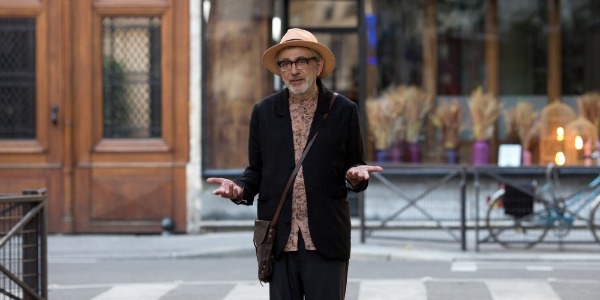
Alistair Ryder: Director Elia Suleiman specialises in comedies that deal with the conflict in his homeland of Palestine – his absurdist view of the conflict drawing unlikely comparisons to Buster Keaton and Jacques Tati. Despite a ten year absence from filmmaking, Suleiman’s comic style remains intact, still as likely to draw flattering reviews comparing him to two of the genre’s most influential icons, with his central ideas on living in a country torn apart by conflict understandably remaining the same. But whereas other critics have remained blown away by It Must Be Heaven, I was left cold at the basic nature of his comic worldview, often relying on the laziest gags to repeat obvious political ideas, reiterated purely to make liberal film festival audiences applaud en masse.
The director plays a loosely fictionalised version of himself, travelling from Palestine to Paris and then to New York, hoping to get funding for his latest comedy about the never ending conflict. During his time abroad, he sees multiple comparisons between the western world and his home country, that tend to get overlooked by the westerners who view Palestine as a nation torn apart by war, not realising the excessive militarisation that has taken place on their own turf.
The central issue with It Must Be Heaven is the sheer laziness of the comic insights, and I was left baffled as to how so many critics have been left moved by a film that tackled its themes of cultural identity and homesickness from such an insufferably quirky angle. Take Suleiman’s visit to New York, which opens with an overblown sight gag about how Americans own a lot of guns – far from an original insight, yet transformed into a set piece that acts like it is the first film to ever make this groundbreaking observation (that you can’t carry firearms in New York City is another distracting component to this belaboured joke). Elsewhere, a throwaway line from a cameoing Gael Garcia Bernal, who loudly explains over the phone that Suleiman is not a “Palestinian filmmaker from Israel”, is another exceptionally clunky moment – any criticism of Israel’s occupation of Palestinian territory is welcome, but when it feels cynically engineered to make liberal audiences applaud among themselves for sharing this view, it can’t help but feel cringeworthy.
There are amusing comic moments, that are mainly found within the Paris chapter. A pure slapstick sequence of people rushing to take seats in public places, and the deadpan delight of an awkward meeting where Suleiman is rejected funding for his latest film as the production company only want sad films about the Palestinian conflict, both feel well observed. But it’s a shame that they are interlinked with clumsier sequences, that feel like they are playing directly to the audience’s political biases with nothing new to say aside from the obvious.
Does content like this matter to you?
Become a Member and support film journalism. Unlock access to all of Film Inquiry`s great articles. Join a community of like-minded readers who are passionate about cinema - get access to our private members Network, give back to independent filmmakers, and more.
Gus is a 3rd year English Lit and Creative Writing student who loves everything film and still doesn't understand why he didn't study that instead. He is the co-editor for Venue, the arts supplement of his Uni's newspaper, and has written for Little White Lies, ScreenRant, Dog and Wolf, BritFlicks and Outline Norwich.













